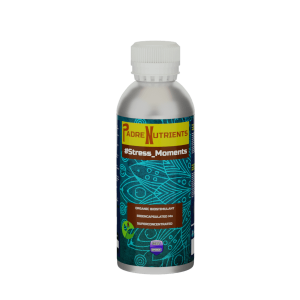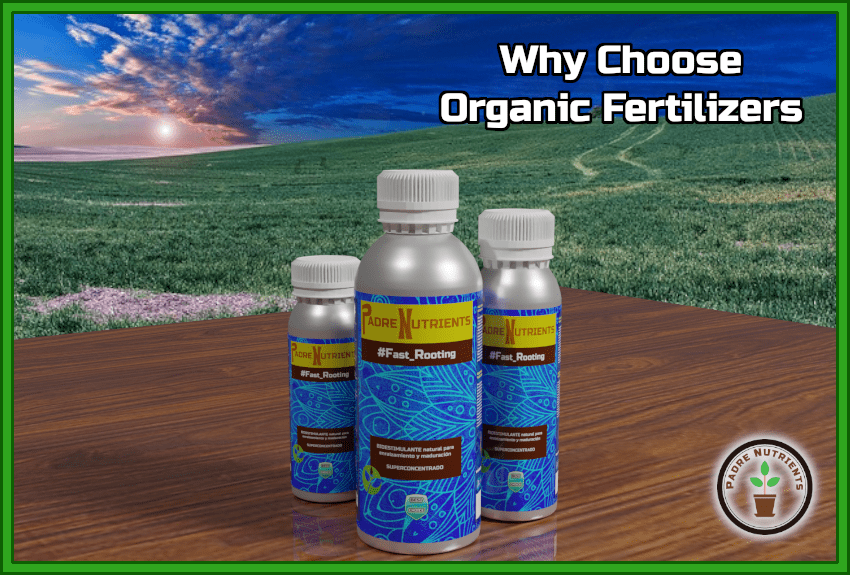These days, everyone from backyard gardeners to big agri-businesses are increasingly using organic fertilizers. This is due in part to an increased consumer demand for organic produce. It’s also partly due to the positive press earned by “going green” and eco friendly.
The average person, however, may wonder if there’s any substance to all these buzz words. Are synthetic fertilizers really that bad for agriculture and dangerous to animals and people? Are organic fertilizers really all that much better and safer? If so, why? And what are “organic fertilizers” anyway? This article will try to answer these questions for you.
INDICE de CONTENIDOS
WHAT IS ORGANIC FERTILIZER?
Basically, inorganic fertilizers are made from synthetic, manufactured chemicals, and organic fertilizers are made from naturally occurring organic material. This is a bit of an oversimplification, however, and sometimes the line between organic and inorganic fertilizers can get a bit blurry. For example, naturally occurring minerals such as limestone, saltpeter, and mine rock phosphate, although technically inorganic (they come from rocks, after all), have been used as fertilizers for centuries and are just as safe as organic fertilizers.
Organic fertilizers are generally created as other organic material that rots and decays. As plant and animal matter rots, the organic material breaks down into its component water and minerals. The resulting biomass is very high in nutrient quality.

The most common example of this is compost, which many backyard gardeners make themselves from organic waste?dead leaves, grass clippings, leftover food, etc. Another example is animal manure, which is also very high in nutrient content and has been used in agriculture as a fertilizer for thousands of years. Finally, some plants are used directly as fertilizers, like seaweed and peat moss.
WHAT’S WRONG WITH INORGANIC CHEMICAL FERTILIZERS?
Many inorganic fertilizers contain synthesized chemicals that do not occur naturally in nature, and thus can become harmful. The introduction of such chemicals, if used extensively over time, can throw off the local environment and ecosystem.
The most common form of chemical pollution occurs when it rains, and the synthetic chemical fertilizers get washed out of the soil into the rainwater runoff. This agricultural runoff flows into the ponds and streams, where they frequently kill the fish and other water life. These chemicals also eventually leech down into the groundwater that people and animals drink.
Finally, some crops will absorb these synthetic chemicals into their plant matter as they grow. When people buy such produce and eat it, these chemicals are introduced to their bodies. One meal of such produce may be harmless, but over a lifetime of eating such produce, these synthetic chemicals can build up in the body.
IS ORGANIC FERTILIZER REALLY BETTER?
Obviously, the introduction of unnatural chemicals into the local environment is not a problem with organic fertilizers, which are made from other naturally occurring organic plant and animal matter.
In terms of encouraging crop grow, however, organic fertilizers are just as good as synthetic fertilizers. Whereas synthetic fertilizers are concentrated, organic fertilizers are more diluted throughout a large amount of biomass. On the one hand, this means you have to use more organic fertilizer to achieve the same effect as a smaller amount of synthetic fertilizer. On the other hand, however, this means that the nutrients are released into the soil gradually, at a slower, more consistent rate over the course of the crops growth cycle. This prevents the boom-and-bust cycle that some synthetic fertilizers can create in crops.
Finally, a 32-year study in Sweden between organic and synthetic fertilizers found that, although both greatly encouraged crop growth over unfertilized fields, organic fertilizers encouraged a higher yield than synthetic fertilizers (65% compared to 50%).
We hope this article has answered some of your questions about organic fertilizers. This article, however, is just the tip of the iceberg,there is much more to learn. If you want to try using organic fertilizers, we suggest doing more research so you can find just the right fertilizer for your garden.
HOW IS AN ORGANIC FERTILIZER DIFFERENT FROM A BIOLOGICAL FERTILIZER?
The so-called BIOLOGICAL FERTILIZERS are a part of the ORGANIC FERTILIZERS, and differ in that they use BACTERIA, FUNGI and INSECTS to (among other effects) combat pests that attack the roots, leaves, stems and fruits of our plants, using “beings alive “to fight them. It is much more than a product, it is a strategy. BIO-RATIONALS or BIO-INPUTS have a lesser impact on plants, and correct the problems caused by plag3 as in a more natural way. If you want to know how the TRICHODERMA FUNGUS (one of the most widespread BIO-RATIONALS) works, we recommend that you read the article 3 ADVANTAGES OF THE TRICHODERMA AND CANNABIS RELATIONSHIP
Our firm, PadreNutrients.com puts at your disposal a wide range of organic fertilizers, not harmful to the environment, and that has a high contribution of proteins of vegetable origin. If you have questions about organic fertilizers, do not hesitate to contact us and we will help you solve your doubts.

